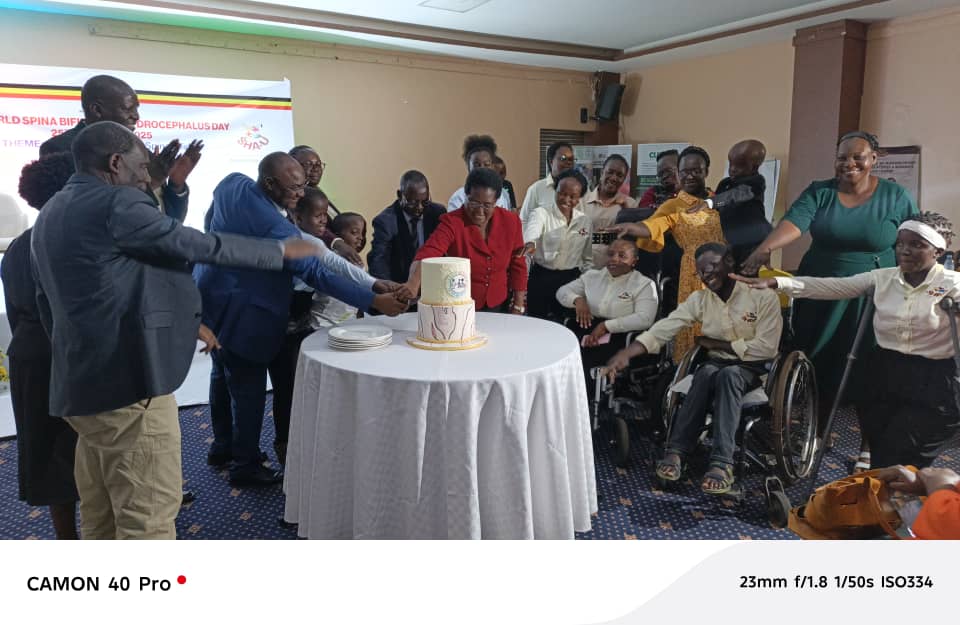By Kabuye Ronald
Stakeholders, medical professionals, parents, and people living with Spina Bifida and Hydrocephalus have appealed to the government to include Oxybutynin among the essential medicines that are procured and distributed free of charge to patients in Uganda.

Oxybutynin is used to treat symptoms of an overactive bladder such as incontinence (loss of bladder control) or frequent urination. The drug belongs to a class of medicines called antispasmodics, which help reduce bladder muscle spasms and the frequent urge to urinate caused by these spasms. Extended-release Oxybutynin tablets are also prescribed for children aged six years and above who suffer from overactive bladder due to nerve disorders such as Spina Bifida.
The appeal was made during the commemoration of Spina Bifida and Hydrocephalus Day, held at Silver Springs Hotel, Bugolobi, under the theme “Accelerate Action for Spina Bifida and Hydrocephalus in Uganda.”
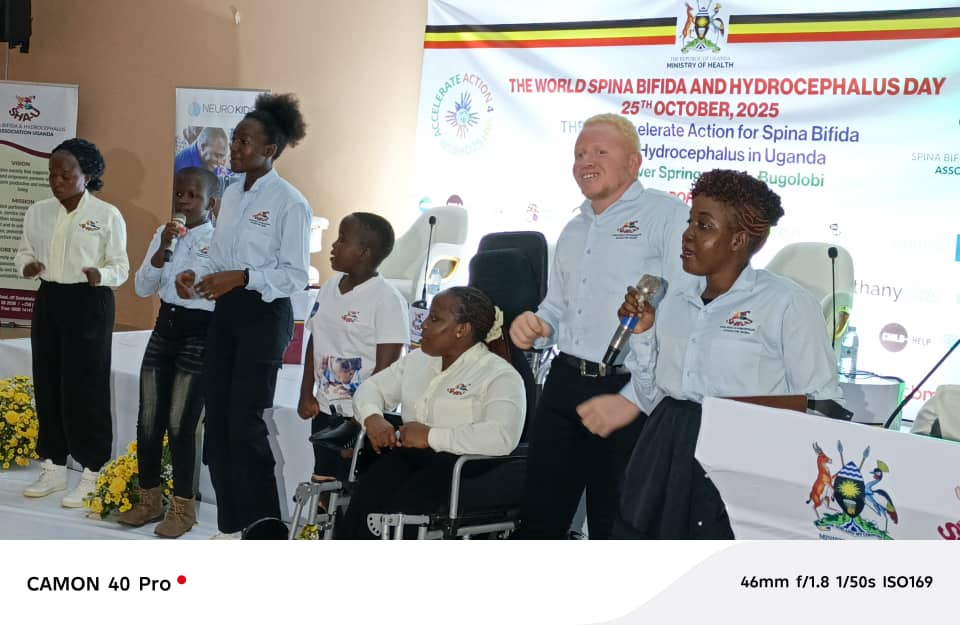
Phoebe Mutonyi, Chairperson of the Board of Directors for the Spina Bifida and Hydrocephalus Association of Uganda SHAU, noted that the burden of the condition remains significant, affecting at least one in every 1,000 newborns. She highlighted that the cost of treatment and surgery is still prohibitively high for many families.
“It’s time for government to recognize Oxybutynin as an essential drug,” Mutonyi said. “We depend on donors, but what happens if they withdraw support? What happens to our children? The government should start procuring and distributing this drug free of charge.”

She also emphasized the importance of prevention, calling for improved food fortification to ensure sufficient levels of folic acid, an essential nutrient that helps prevent neural tube defects like Spina Bifida.
Nurse Tonny Wambi, Coordinator of Clinical Care for children with Spina Bifida and Hydrocephalus at CURE Children’s Hospital, Mbale, revealed that between January and September this year alone, the hospital conducted 217 surgeries for Spina Bifida and 1,200 for Hydrocephalus.
Wambi urged the government to increase public awareness, train more neurosurgeons beyond the current 20 serving the entire country, and waive taxes on essential medical inputs.
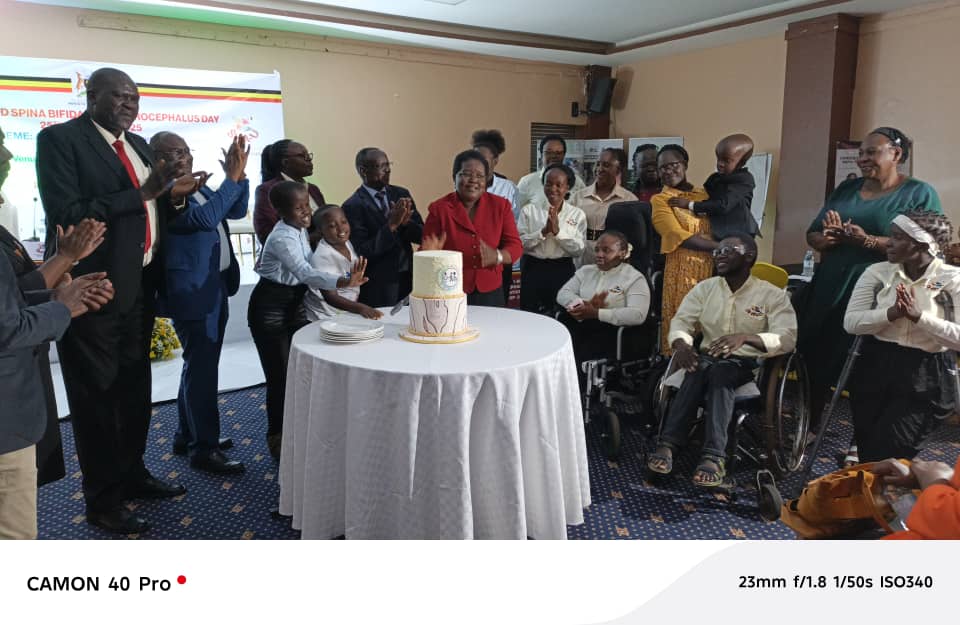
“Children with Spina Bifida frequently suffer urinary infections due to bladder dysfunction,” he said. “Oxybutynin helps relax the bladder muscles and prevent incontinence. Without it, their quality of life deteriorates severely. The drug is currently donor-supplied and unavailable in pharmacies.”
Olive Nabiryo, Occupational Therapist and Chief Coordinator for Spina Bifida and Hydrocephalus at Katalemwa Cheshire Home, reported that there are over 6,000 children living with these conditions in the Central Region alone at Katalemwa. She cited the high cost of rehabilitation and the unavailability of Oxybutynin as major obstacles.
“At Katalemwa, we face serious challenges, especially accessing Oxybutynin, which is not classified as an essential drug in Uganda,” Nabiryo explained. “We depend on donor supplies, and when we run out, the children’s rehabilitation stalls. Without it, they struggle with incontinence, which keeps them from attending school or working, affecting their dignity and future.”
Speaking on behalf of parents, Naluyima Katende shared the struggles families face in caring for children with these preventable conditions, pointing to low public awareness and inadequate promotion of folic acid intake among women before and during pregnancy.
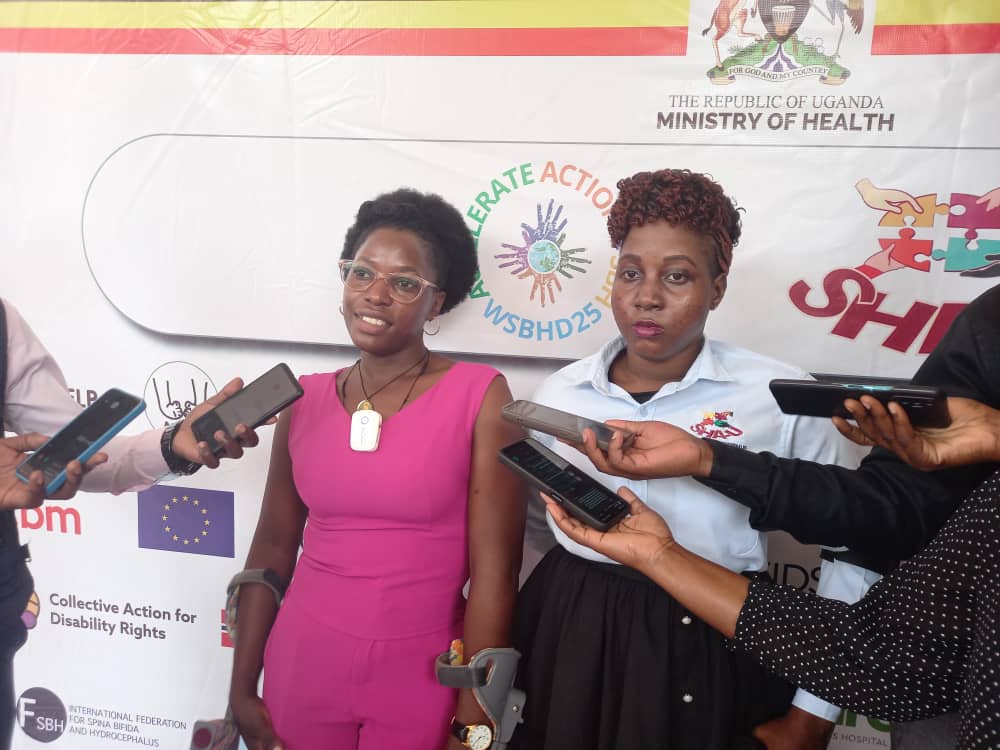
She appealed to communities to support and accept children born with Spina Bifida or Hydrocephalus and urged the government to make medical care including surgeries and Oxybutynin more accessible and affordable.
Meanwhile, Nakanyiga Catherine and Nadonge Efrance, both living with the conditions, decried the stigma and discrimination they face in schools, workplaces, and health facilities. They called on the government to ensure that Oxybutynin is added to the essential drugs list to protect their kidneys and improve their quality of life.
Dr. George Upenytho, Commissioner for Health Services and Community Health at the Ministry of Health, announced that the ministry has developed a Rehabilitation and Assistive Technology Strategic Plan (2025/26–2030/31) to address such challenges.
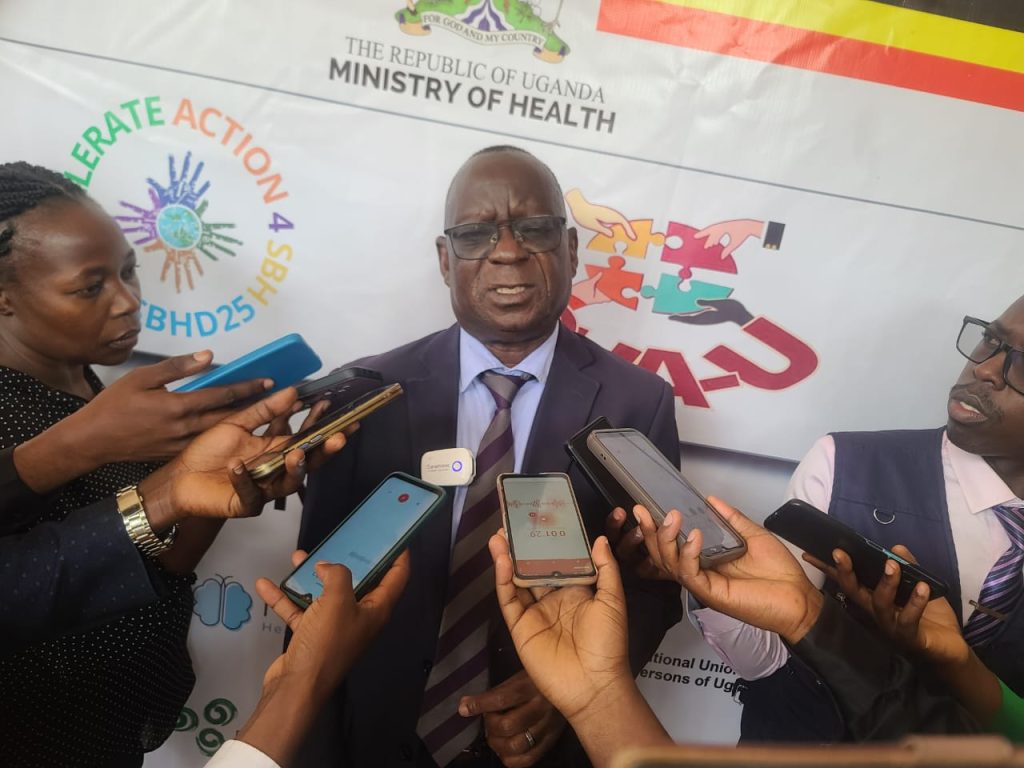
“This strategy includes comprehensive measures for prevention, care, treatment, and rehabilitation of conditions like Spina Bifida and Hydrocephalus,” Dr. Upenytho said. “Prevention remains our top priority, but we are also working to ensure access to assistive devices and essential medicines. Government facilities such as CURE Hospital in Mbale and CoRSU Hospital are key partners in this effort.”
He acknowledged the shortage of neurosurgeons and limited treatment centers in the country but assured stakeholders that the ministry is taking steps to strengthen service delivery and improve access to essential care.
Spina Bifida and Hydrocephalus are serious medical conditions. Hydrocephalus is characterized by the buildup of fluid in the brain’s cavities, which increases pressure on the brain. Spina Bifida, on the other hand, is a birth defect in which the spinal column does not develop properly, leaving part of the spinal cord and nerves exposed. The best preventive measure for Spina Bifida is the consumption of folic acid supplements before and during pregnancy. Both conditions require specialized medical care, which is only available at specific hospitals, including Mulago National Referral Hospital, Cure Children’s Hospital in Mbale, and Mbarara Regional Referral Hospital. However, there are only 20 surgeons in Uganda trained to treat these conditions.

